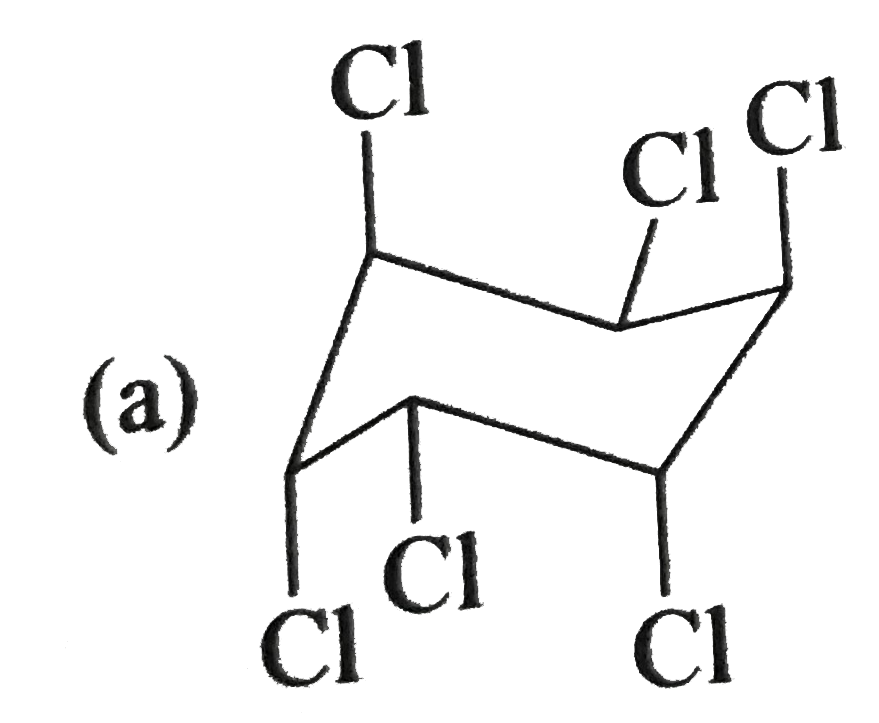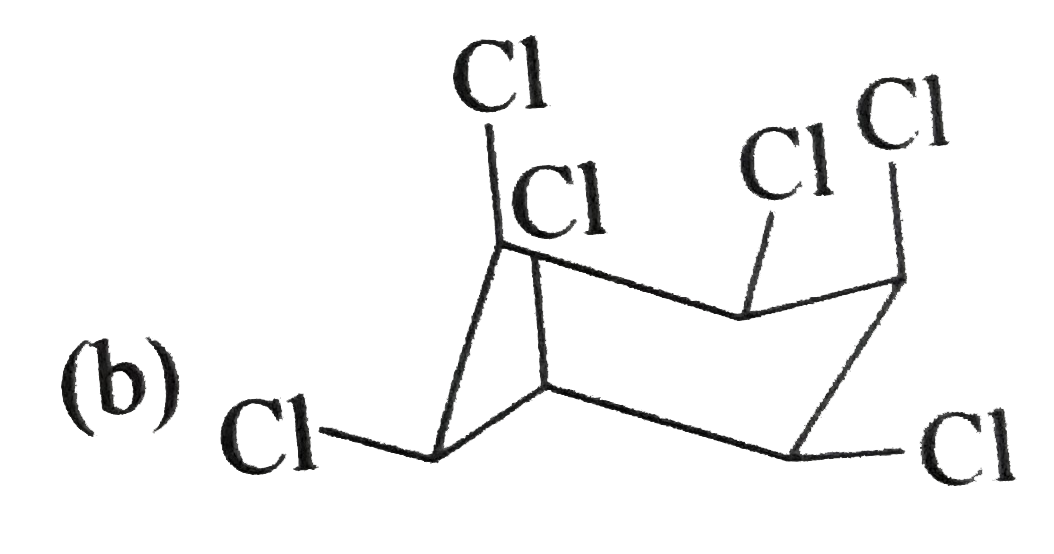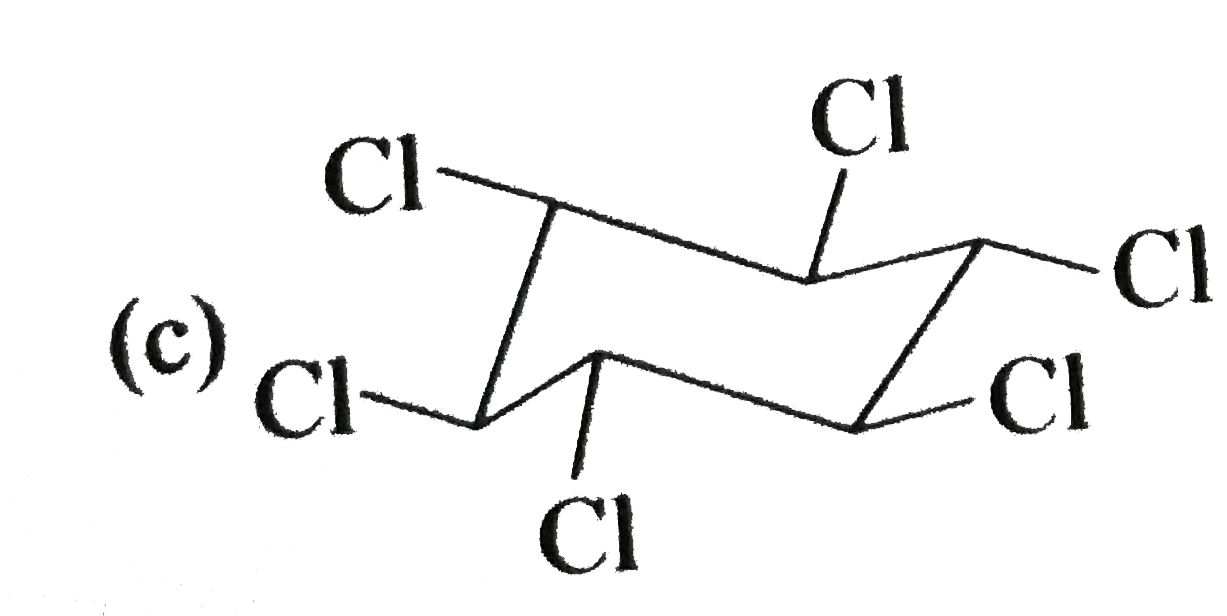Isobutene is the exclusive product of dehydrohalogenation ( by a strong base ) of
isobutyl chloride
tert - butyl bromide
both (a) and (b)
neither (a) nor (b)
The correct Answer is:c
To determine which compound will yield isobutene as the exclusive product of dehydrohalogenation by a strong base, we need to analyze the provided options. Isobutene (or 2-methylpropene) has the formula C4H8 and can be represented as:
CH2=C(CH3)2
1. Identify the Structure of Isobutene:
- Isobutene is a branched alkene with the structure CH2=C(CH3)2. This indicates that it has a double bond between the first and second carbon atoms.
2. Understand Dehydrohalogenation:
- Dehydrohalogenation is a reaction where a hydrogen halide (HX) is eliminated from an alkyl halide in the presence of a strong base, leading to the formation of an alkene.
3. Analyze the Options:
- Let's consider the options provided (A, B, C, D) for possible alkyl halides that can undergo dehydrohalogenation to yield isobutene.
4. Option A: Isobutyl Chloride (C4H9Cl):
- Structure: CH3-CH(CH3)-CH2-Cl
- Upon treatment with a strong base, the base will abstract a β-hydrogen (the hydrogen on the carbon adjacent to the carbon bearing the halide), leading to the formation of isobutene.
- Reaction:
CH3−C(Cl)(CH3)−CH2−HStrong Base−−−−−−−→CH2=C(CH3)2+HCl
5. Option B: Tertiary Butyl Bromide (C4H9Br):
- Structure: (CH3)3C-Br
- Similar to option A, the strong base will abstract a β-hydrogen from the tertiary butyl bromide, leading to the formation of isobutene.
- Reaction:
(CH3)3C-BrStrong Base−−−−−−−→CH2=C(CH3)2+HBr
6. Conclusion:
- Both isobutyl chloride and tertiary butyl bromide can yield isobutene as the exclusive product upon dehydrohalogenation with a strong base. Therefore, both options A and B are correct.
Final Answer:
Isobutene is the exclusive product of dehydrohalogenation of:
- A) Isobutyl Chloride
- B) Tertiary Butyl Bromide
- Isobutene is a branched alkene with the structure CH2=C(CH3)2. This indicates that it has a double bond between the first and second carbon atoms.
- Dehydrohalogenation is a reaction where a hydrogen halide (HX) is eliminated from an alkyl halide in the presence of a strong base, leading to the formation of an alkene.
- Let's consider the options provided (A, B, C, D) for possible alkyl halides that can undergo dehydrohalogenation to yield isobutene.
- Structure: CH3-CH(CH3)-CH2-Cl
- Upon treatment with a strong base, the base will abstract a β-hydrogen (the hydrogen on the carbon adjacent to the carbon bearing the halide), leading to the formation of isobutene.
- Reaction:
CH3−C(Cl)(CH3)−CH2−HStrong Base−−−−−−−→CH2=C(CH3)2+HCl
- Structure: (CH3)3C-Br
- Similar to option A, the strong base will abstract a β-hydrogen from the tertiary butyl bromide, leading to the formation of isobutene.
- Reaction:
(CH3)3C-BrStrong Base−−−−−−−→CH2=C(CH3)2+HBr
- Both isobutyl chloride and tertiary butyl bromide can yield isobutene as the exclusive product upon dehydrohalogenation with a strong base. Therefore, both options A and B are correct.
Isobutene is the exclusive product of dehydrohalogenation of:
- A) Isobutyl Chloride
- B) Tertiary Butyl Bromide
Topper's Solved these Questions
- HYDROCARBONSBOOK - DISHA PUBLICATIONCHAPTER - HYDROCARBONSEXERCISE - EXERCISE -2 CONCEPT APPLICATOR
29 Videos
- HYDROCARBONSBOOK - DISHA PUBLICATIONCHAPTER - HYDROCARBONSEXERCISE - EXERCISE -2 CONCEPT APPLICATOR
29 Videos
- HALOALKANES AND HALOARENES BOOK - DISHA PUBLICATIONCHAPTER - HALOALKANES AND HALOARENES EXERCISE - Exercise -2 : Concept Applicator
28 Videos
- HYDROGENBOOK - DISHA PUBLICATIONCHAPTER - HYDROGENEXERCISE - Exercise - 2 : Concept Applicator
30 Videos
Similar Questions
Knowledge Check
Dehydrohalogenation by strong base is slowest in
A B
B C
C D
D
Dehydrohalogenation by strong base is slowest in :
A B
B C
C D
D
In dehydrohalogenations the base (alcoholic KOH) abstacts-
AThe halide ionBThe proton present on the carbon next to the carbon to which the halogen is attached.CThe proton present on the carbon to which the halogen is attached.DThe proton on the α-carbon
What is dehydrohalogenation ? State the rule for formation of preferred product of dehydrohalogenation. Predict all the alkenes that would be formed by dehydrohalogenation of following alkyl halide.
3−bromo−2,2,3−trimethylpentane
View SolutionWhat is dehydrohalogenation ? State the rule for formation of preferred product of dehydrohalogenation. Predict all the alkenes that would be formed by dehydrohalogenation of following alkyl halide.
2-chloro-2-methylbutane
View SolutionWhich of the following is a strong base?
View SolutionWhich of the following is a strong base?
View SolutionWhich of the following is a strong base?
View Solution
